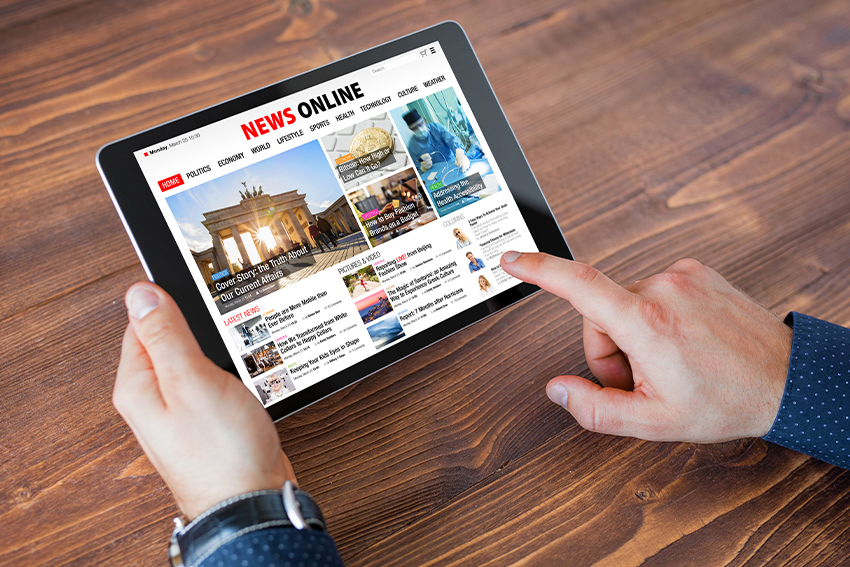What Does International News Online Do?
Wiki Article
9 Easy Facts About International News Online Shown
Table of ContentsEverything about International News OnlineMore About International News OnlineThe smart Trick of International News Online That Nobody is DiscussingA Biased View of International News OnlineThe Greatest Guide To International News Online
Some social media websites despite having relatively little general audiences stand out for having high shares of customers who routinely go to the website for news. On the various other hand, just 15% of Snapchat customers frequently obtain information on the application.
, Sept
When asked whether social media is a good or poor point for democracy in their nation, a typical of 57% across 19 countries say that it is an excellent point. In practically every nation, close to half or more claim this, with the view most usual in Singapore, where roughly three-quarters think social media is a good thing for freedom in their country.
And in the U.S., only around a 3rd think social media declares for democracy the smallest share amongst all 19 nations evaluated. In eight nations, those who believe that the political system in their nation permits them to have an influence on politics are also more likely to claim that social networks is a good idea for democracy.
Those who watch the spread of false info online as a major risk to their country are much less most likely to say that social media sites is an advantage for freedom, compared to those that see the spread of false information online as either a small danger or otherwise a danger at all.
The smart Trick of International News Online That Nobody is Discussing
This pattern is noticeable in eight various other nations. Sights also vary by age. Older grownups in 12 nations are much less most likely to say that social media is a good idea for freedom in their country when compared to their younger counterparts. In Japan, France, Israel, Hungary, the UK and Australia, the void between the youngest and earliest age goes to the very least 20 portion factors and varies as high as 41 points in Poland, where virtually nine-in-ten (87%) younger grownups state that social media sites has been a good idea for freedom in the nation and just 46% of adults over 50 state the very same.Across the six issues examined, couple of often tend to say they see no changes because of raised connectivity instead seeing things altering both positively and adversely and often both at the same time (International News Online). A typical of 84% state technical connection has actually made individuals less complicated to control with false info and rumors the most among the six problems examined
In the majority of countries, those who believe social media has made it simpler to adjust individuals with misinformation and reports are additionally more likely to believe that social media has actually made individuals more educated. When it pertains to politics, the web and social media sites are normally viewed as disruptive, with an average of 65% saying that YOURURL.com individuals are now extra divided in their political viewpoints.
The Definitive Guide for International News Online
This feeling of risk is connected to the widespread idea that people today are currently less complicated to adjust with incorrect information and reports thanks to the internet and social media sites. Around half or more in every nation surveyed shares this sight. And in areas like the Netherlands, Australia and the UK, around nine-in-ten see individuals as even more manipulable.In South Korea, 90% of those under age 30 state social media makes people much easier to control, compared with 65% of those 50 and older. (Remarkably, U.S.-focused study has discovered older grownups are more probable to share false information than younger ones.) People with even more education and learning are additionally often most likely than those with much less education and learning to state that social media has caused people being less complicated to control.

International News Online Things To Know Before You Get This
In Sweden, Japan, Greece and the Netherlands, around eight-in-ten or more share this sight, while in Malaysia, a smaller sized bulk (56%) says the very same. Younger adults often tend to see social media sites making people more informed than older grownups do. Older adults, for their component, don't necessarily see the net and social media making individuals less educated concerning what's happening in their nation; Check This Out instead, they're somewhat extra likely to define these systems as having little effect on people's details degrees.

Report this wiki page